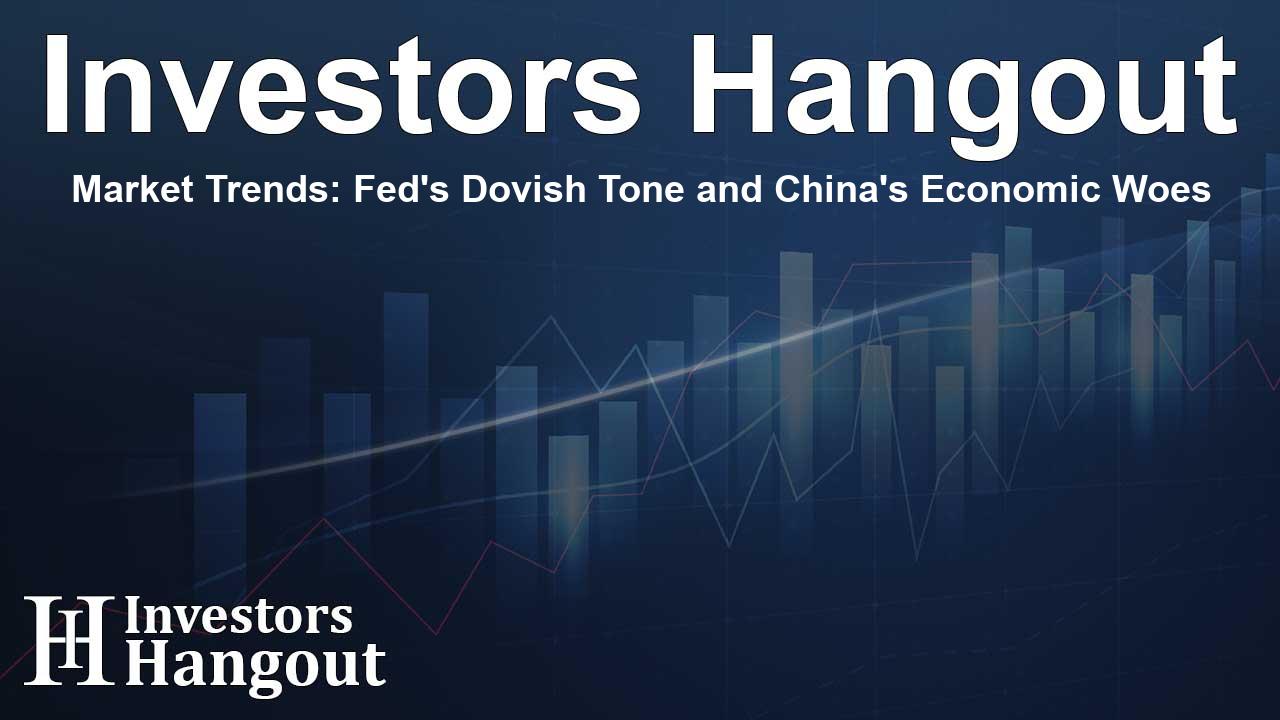Market Trends: Fed's Dovish Tone and China's Economic Woes

Market Insights: The Fed's Impact and China's Economic Hurdles
The finance world is always in flux, and right now, two significant themes are emerging as we examine the Asian markets. There are underlying worries about China's economy, alongside expectations for a dovish approach from the Federal Reserve, both of which are crucial in shaping the current market environment.
The Fed's Dovish Outlook
As the Federal Reserve approaches its next decision on interest rates, speculation is growing in global markets. Analysts are currently suggesting a 60% likelihood of a notable 50 basis point rate cut. This potential easing is echoing through financial markets, especially impacting the strength of the dollar.
Recently on Wall Street, market players adopted a cautious stance. Even though bond yields have decreased, there’s a palpable sense of anxiety as the critical moment of the Fed's decision looms closer. Investors are recalibrating their expectations, anticipating a potentially significant change in monetary policy.
Currency Movements and Market Implications
The expected dovish tone from the Fed is having a significant impact on currency markets. The Japanese yen has appreciated, reaching its highest level against the dollar since last July. The dollar dropped below 140.00 yen before managing a slight recovery, leading analysts to consider the implications for currency dynamics.
The MSCI index for emerging market currencies has reached a remarkable milestone, achieving a lifetime high. This reflects a shift in investor sentiment and raises concerns about economic conditions in various areas.
China's Economic Challenges
While global investors are focused on the Fed, China's economic outlook is deteriorating rapidly. Leading financial institutions like SocGen and Barclays have described the country's economic forecast as being in a "downward spiral." This gloomy outlook for China's economy is placing pressure on markets around the globe.
Weak data across multiple sectors—including industrial, consumer, and housing markets—highlight the severe challenges facing the world’s second-largest economy. Analysts from Goldman Sachs and Citi have revised their 2024 GDP growth predictions for China down to just 4.7%, significantly below Beijing's target of approximately 5%. This trend likely points to further downgrades ahead.
Emerging Risks and the Call for Stimulus
The ongoing troubles in China extend beyond its borders and could indeed have global repercussions. Economists are calling for strong fiscal and monetary measures to stimulate growth and consumer demand. However, skepticism remains about whether the Chinese government can implement the required reforms effectively.
Some experts even foresee a lengthy recovery process, comparing China's current predicament to the housing crises seen in the U.S. and Europe during the Global Financial Crisis. With the Chinese 10-year bond yield falling below 2.05% for the first time, market indicators are signaling warnings.
Looking Ahead: Important Indicators to Watch
As we turn our attention to the near future, several key economic reports are expected to shed light on market directions. Investors should keep an eye on:
- India's wholesale price inflation data for August, which could provide insights into regional inflation trends.
- Indonesia's trade statistics for August, crucial for understanding the economic dynamics within the region.
- Japan's tertiary index data for July, showcasing the health of service sectors that are vital for economic recovery.
Conclusion: Navigating the Financial Landscape
As Asian markets prepare for potential changes spurred by the Federal Reserve and China’s economic challenges, the interconnectedness of these events highlights the complexity of today's financial landscape. It's essential for investors to stay informed and adaptable as they navigate these unpredictable waters.
Frequently Asked Questions
What impact will the Fed's decisions have on Asian markets?
The Fed's interest rate decisions can influence where capital flows and how exchange rates behave, thus affecting investment choices in Asian markets.
How is China's economy performing currently?
Recent figures indicate that China's economy is grappling with significant challenges, leading institutions to lower GDP growth predictions below the government's targets.
What are the consequences of a weakening dollar against the yen?
A weaker dollar can enhance exports for Japanese companies while raising import costs, thereby affecting trade balances.
What key economic indicators should investors watch?
Investors should keep an eye on inflation rates, trade statistics, and performance indicators across sectors to assess overall economic health.
How do global economic conditions affect local markets?
Global economic trends can sway local market sentiment, impacting investments, consumer behavior, and overall economic stability.
About The Author
Contact Olivia Taylor privately here. Or send an email with ATTN: Olivia Taylor as the subject to contact@investorshangout.com.
About Investors Hangout
Investors Hangout is a leading online stock forum for financial discussion and learning, offering a wide range of free tools and resources. It draws in traders of all levels, who exchange market knowledge, investigate trading tactics, and keep an eye on industry developments in real time. Featuring financial articles, stock message boards, quotes, charts, company profiles, and live news updates. Through cooperative learning and a wealth of informational resources, it helps users from novices creating their first portfolios to experts honing their techniques. Join Investors Hangout today: https://investorshangout.com/
The content of this article is based on factual, publicly available information and does not represent legal, financial, or investment advice. Investors Hangout does not offer financial advice, and the author is not a licensed financial advisor. Consult a qualified advisor before making any financial or investment decisions based on this article. This article should not be considered advice to purchase, sell, or hold any securities or other investments. If any of the material provided here is inaccurate, please contact us for corrections.
